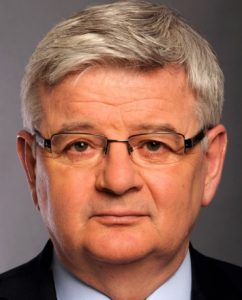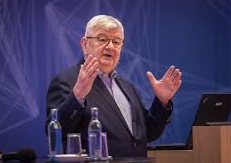
Fischer states that Yugoslavs Must Acquire Democratic Culture in order to be able to Relate to Germany
(Berlin), AP, Oct. 11, 2000
German Foreign Minister Joschka Fischer, addressing Parliament on Wednesday, expressed his opinion that Germany should not only provide material help to Yugoslavia but that the Bundeswehr [German Armed Forces] and non-military organizations should establish a permanent presence there. He declared that this was a unique chance to create a democracy in the context of further European unification.

Reunited Germany has a special responsibility for stabilizing democracy in Serbia. Democracy, said Mr. Fischer, is the basis for a lasting peace in the Balkans. But the priority is for the moment that the democratic changes be carried out peacefully and that justice prevail. The Western Balkans is a part of the European comprehensive responsibility.
It was truly correct at the time to stop Slobodan Milosevich’s policy of Greater Serbia and to engage oneself on the side of the democratic opposition, says Joschka Fischer. Now the bloody murdering in the Balkans can be stopped. The Stability Pact has to be used, among other things, for the clearing of the Danube. Also democratic culture has to be built up [in Serbia] to make possible the normalization of relations between Germany and Serbia.
The first steps have been taken through the lifting of the oil and the flight embargoes by the European Union. Now Serbia can be accompanied on its route toward Europe. In the words of Fischer, all those who have made themselves guilty of grave crimes have to be brought to justice.